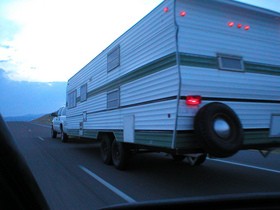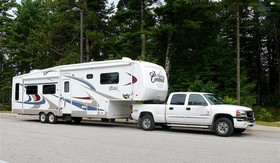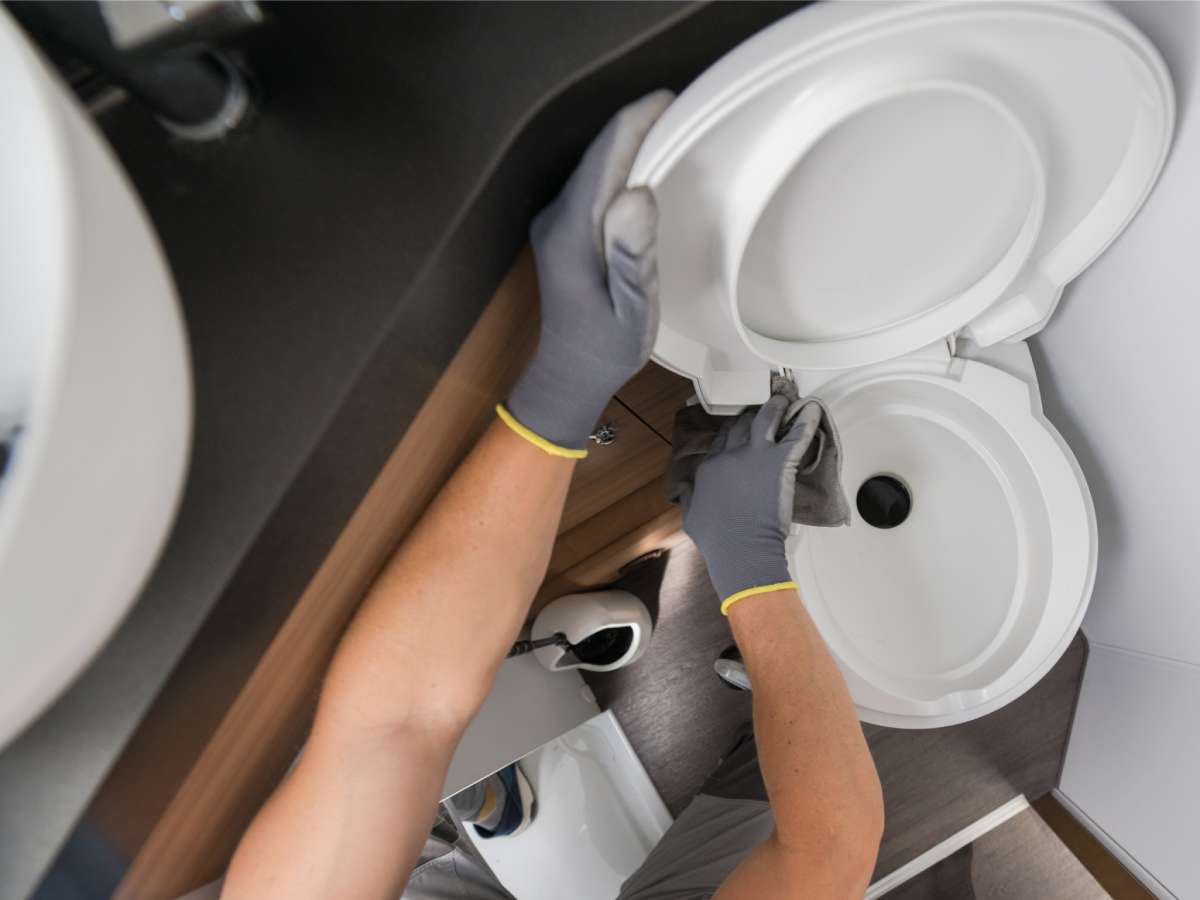 Pulling a trailer, no matter what type or size, means you need to take on a whole new persona.
Pulling a trailer, no matter what type or size, means you need to take on a whole new persona.
Quick movements, jack-rabbit starts, and last-minute stops must be removed from your behind-the-wheel activities.
Nothing will get you into trouble faster than momentarily forgetting you have this huge mass of weight behind you. In most cases, that weight is capable of easily pushing you where you don’t want to go.
With today’s very powerful diesel pickup trucks it’s quite easy to have a truck matched up to a trailer that weighs well over twice what the truck weighs. Of course, the trucks are rated to handle this amount of load and it’s perfectly legal. You just need to take this additional weight into consideration in how you drive.
Tow Vehicle Considerations
Many people put fuel economy at the top of their list when purchasing the vehicle that will ultimately be towing their recreational trailer.
However, when it comes time to hitch up, you may find that your trailer is well over the rated towing capacity of your tow vehicle.
It’s critically important that the trailer be within the rating limitations of the tow vehicle, as this will have a dramatic affect on how the combination handles, accelerates, and stops.
Stopping When Pulling A Trailer
Stopping your truck/trailer combination will become a learning process.
 Electric trailer brakes operate completely differently than the hydraulic brakes of your tow vehicle.
Electric trailer brakes operate completely differently than the hydraulic brakes of your tow vehicle.
Most electric brake controllers available today operate on the principal that they start with light brake application and ramp up or increase the tension on the brakes the longer you hold your foot on the brake pedal. In this way, the brakes will gradually slow you down without locking up the trailer’s wheels (which could put you in the position of an uncontrolled skid).
This is all well and good, as long as you give yourself plenty of time to slow down and ease up to stop signs. By leaving extra room between you and the vehicle in front of you, a gradual slowing and light touch on the brake will bring you to a smooth, controlled stop.
The bad part of an electric brake system is when the unexpected happens. A panic stop translates into a situation where your trailer brakes will not fully apply, and you must rely on the tow vehicle to provide most of your stopping power.
If you jam on the brakes, the same light application of trailer brakes will take place and over a second or two of time, the brake application pressure will increase until you finally have full application of the trailer brakes.
If you’re following closely, those required 2 to 3 seconds just aren’t available, and the results can be disastrous. Also remember, if you lift your foot off the brake pedal, the trailer brakes release and, again, the 2- to 3-second hesitation will occur before full application will resume.
Towing An RV Trailer At Highway Speeds
How your trailer handles at highway speeds should be your second concern.
With lightweight construction techniques being very popular, you can currently match some quite large trailers to smaller tow vehicles.
The larger the trailer’s physical size, the more wind and passing traffic will affect the stability of your RV.
Poor loading techniques can also cause the trailer to sway uncontrollably.
Balancing Your RV’s Weight Distribution
Proper loading is required to avoid poor handling characteristics with an RV trailer.
A minimum of 10% of the total weight of your loaded trailer needs to be tongue weight for travel trailers (trailers that are bumper hitched) to avoid swaying or tail wagging.
A trailer that’s loaded rear heavy can easily drag the tow vehicle back and forth across many lanes of traffic and put you completely out of control. I know this from personal experience, as a utility trailer with a couple motorcycles in it pulled me across 4 lanes of high-speed traffic when it started whipping back and forth on me. It was a valuable lesson I learned many years ago.
 By far the best handling trailer package is a fifth wheel trailer.
By far the best handling trailer package is a fifth wheel trailer.
With the pivot point being directly over the rear axle of the tow vehicle, sway and whipping is all but eliminated from the equation.
A well-balanced travel trailer setup can handle almost as well, though a simple mistake in how you load that same travel trailer can make driving at highway speeds a complete nightmare.
More Tips For Towing RV Trailers
Overall, pulling a trailer requires you to adopt a whole new way of driving.
Relinquish right of way to the other guy, hold back from the crowd, and give yourself lots of time to take action on the road.
A slower, laid-back way of driving — even to the extent of avoiding high speed congested freeways — will reduce stress and allow you to be more comfortable when you’re towing your RV trailer.
The following tips will be helpful if you’re towing an RV trailer for the first time:



